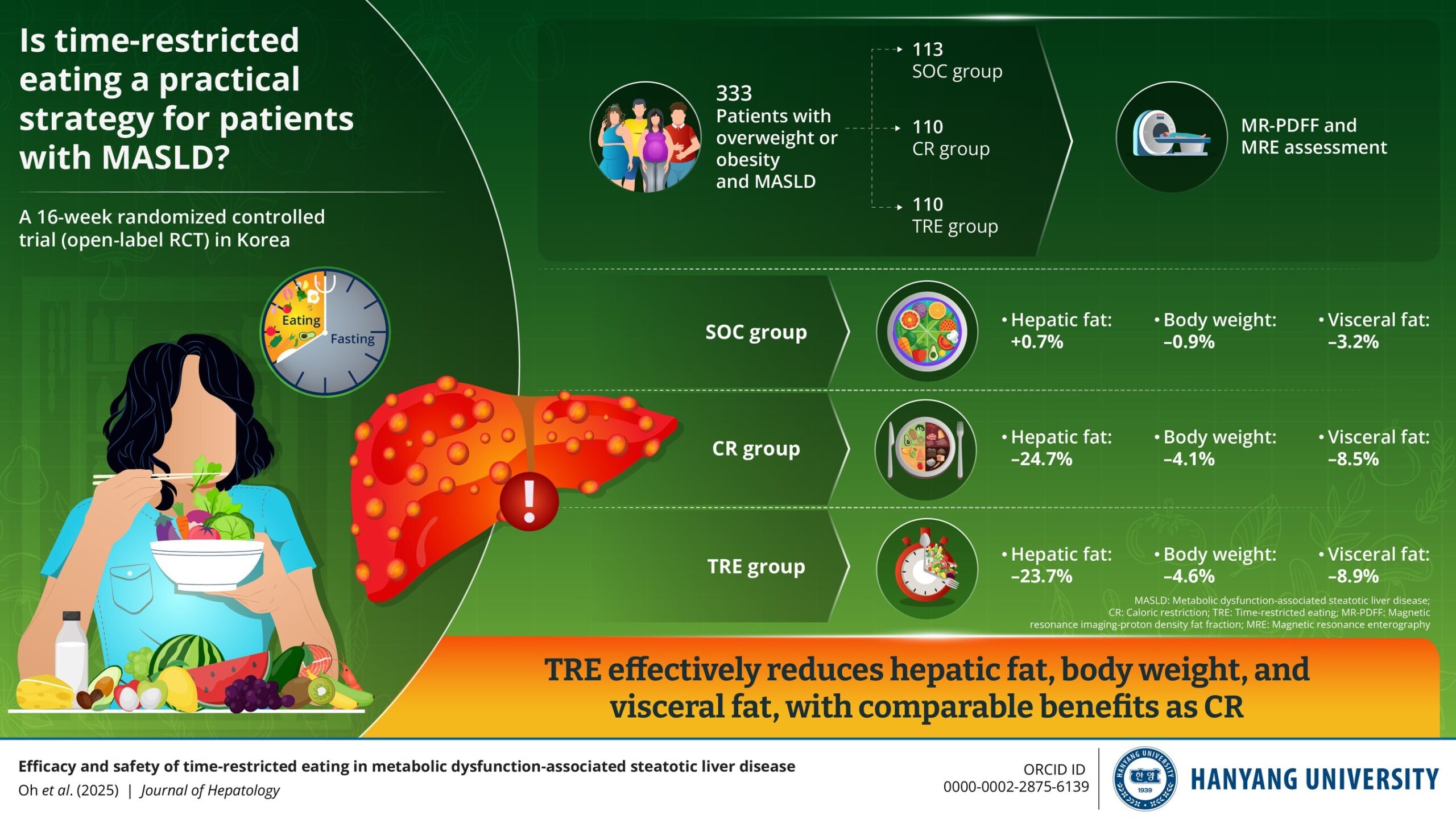New research from Hanyang University has highlighted the potential benefits of time-restricted eating (TRE) for individuals suffering from metabolic dysfunction-associated steatotic liver disease (MASLD). The study, conducted by a team led by Professor Dae Won Jun, found that TRE can effectively reduce liver fat and improve health outcomes in affected patients.
The study, published online on June 19, 2025, in the Journal of Hepatology, indicates that TRE, a form of intermittent fasting, may serve as a practical dietary strategy for managing MASLD. The research shows that the approach enhances weight loss, insulin sensitivity, and body composition, all critical factors in treating this condition.
MASLD is characterized by the accumulation of excess fat in the liver due to metabolic risk factors. Effective management of MASLD typically focuses on addressing these underlying risks through a balanced diet and regular physical activity. The researchers aimed to explore the most effective dietary approach for patients with this condition.
In the study, participants classified as overweight or obese and diagnosed with MASLD were randomized into three groups: a standard of care (SOC) group, a calorie restriction (CR) group, and a TRE group. Measurements included improvements in hepatic steatosis alongside changes in physical, physiological, and biochemical parameters.
Both the TRE and CR groups exhibited significant reductions in liver fat, body weight, and visceral fat. Importantly, no serious adverse events were reported in either group. Notably, those in the TRE group achieved these benefits by limiting their eating hours while maintaining their regular meals, without the need for specific diets such as the Mediterranean diet.
Dr. Joo Hyun Oh, a researcher involved in the study, emphasized the practicality of TRE, stating, “Our study suggests that TRE may be more practical and easier to follow, especially for Asian populations.” The findings showed similar changes in blood glucose, cholesterol levels, and sleep duration between the CR and TRE groups, indicating that while TRE improves liver health, it does not confer additional metabolic or sleep-related benefits beyond those achieved through calorie restriction.
Given the global rise in obesity, establishing clear, evidence-based dietary guidelines is essential. This research aims to dispel misconceptions surrounding unproven dietary trends. With both TRE and CR proving effective for MASLD, individuals are encouraged to select an eating pattern that aligns with their lifestyle.
The insights gained from this study could influence the development of personalized dietary strategies tailored to each individual’s routine, cultural background, and biological needs. Such approaches may facilitate sustainable weight management and help prevent metabolic diseases.
For further information, the original paper is titled “Efficacy and safety of time-restricted eating in metabolic dysfunction-associated steatotic liver disease,” and can be accessed through the Journal of Hepatology via the DOI: 10.1016/j.jhep.2025.06.005.
For more details, visit Hanyang University‘s official website or contact Geunyoung Moon at +82-2-22200873 or via email at [email protected].







